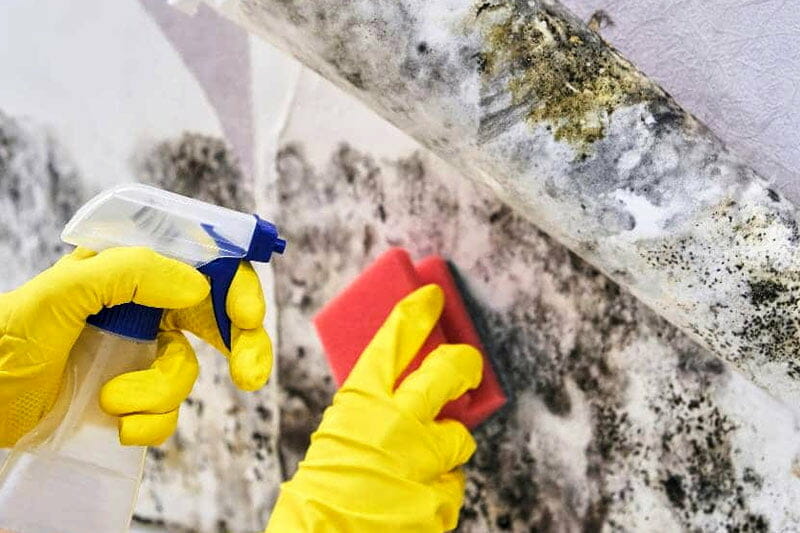Mold can pose serious health risks, so it is important to address the issue promptly. If mold is discovered in your rental property, it’s crucial to understand your landlord’s legal obligations and the steps you should take to protect your health and well-being.

Image: homegardenguides.com
Know Your Landlord’s Responsibilities
Landlords have a responsibility to provide habitable living spaces for their tenants. This includes addressing health hazards, such as mold growth. The specific timeframe for mold remediation may vary depending on local laws and regulations, but generally, landlords should:
- Respond to tenant requests for mold inspection or repair promptly.
- Conduct a thorough inspection of the affected area to determine the source and extent of the mold problem.
- Take immediate action to remove the mold and address the underlying causes, such as moisture problems or leaks.
- Ensure that the affected area is properly cleaned and disinfected to prevent mold growth from recurring.
- Provide alternative housing if necessary, particularly if the mold infestation has made the property uninhabitable.
Tenants’ Rights and Responsibilities
Tenants also have certain obligations when it comes to mold remediation. You should:
- Notify your landlord promptly if you discover mold growth in your unit.
- Provide written documentation, such as photos or a letter, to support your request for mold removal.
- Allow access to your unit for inspections and repairs, provided reasonable notice is given.
- Take steps to minimize moisture accumulation, such as opening windows or using a dehumidifier.
Timeframe for Landlord Action
The specific timeframe for mold remediation can vary depending on the severity of the mold infestation and the landlord’s resources. In most cases, landlords are expected to respond promptly and take action within a few days or weeks. However, in extreme cases, more extensive repairs may be required, which could extend the timeline.

Image: www.youtube.com
Legal Consequences and Remedies
If your landlord fails to repair mold promptly, you may have legal recourse. You can file a complaint with local health authorities or contact your renters’ union or legal aid hotline. You may also be entitled to a rent reduction or other compensation for the health risks and inconvenience caused by the mold growth.
Preventing Mold Problems
In addition to relying on your landlord’s responsibility to address mold, there are steps you can take to prevent mold growth in your rental unit:
- Control moisture levels by opening windows, using fans, or running a dehumidifier.
- Fix leaks or plumbing problems promptly.
- Clean and maintain surfaces prone to mold, such as bathrooms and kitchens.
- Keep your belongings dry and avoid placing them directly on the floor.
How Long Does My Landlord Have To Fix Mold
Conclusion
Mold growth in a rental property is a serious matter that can impact your health and well-being. Understanding your landlord’s responsibilities and your rights as a tenant is essential for ensuring prompt mold remediation and maintaining a habitable living environment.